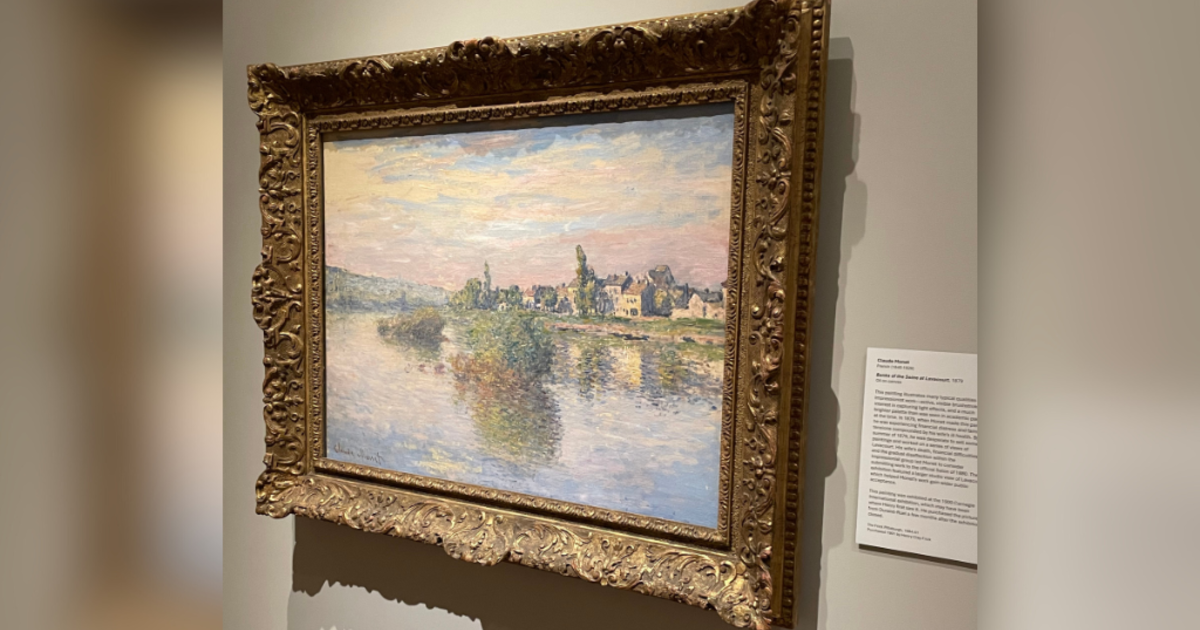How Kids Can Have Allergies, When Parents & Grandparents Do Not?
PITTSBURGH (KDKA) - Amber Lagamba's family knows allergies all too well because both of her daughters suffer.
"Trees, pollen, ragweed," she says. "Spring and fall are very rough on us, because the two of them are constantly taking allergy medicine. And they want to play outside, but all I can think about is they're going to be up all night coughing."
Amber and her husband don't have allergies and their parents don't have allergies either.
Even though the girls aren't allergic to food, even in their classrooms, Amber has noticed a generational change.
"Because of allergies, they've stopped allowing people to bring snacks for birthday parties," Amber says. "I don't remember having anyone I knew that was highly allergic to anything. Maybe a slight irritation, like it upset their stomach or something. But not like today, where you hear of kids where they even touch something that someone may have had peanut oil on their hands and they can't breathe."
It's something the dad of 6-year-old Evelyn Kelly definitely worries about.
"He can't have her best friend's birthday cake," he says. "She's allergic to all tree nuts, and peanuts. She is very severe and it is a life threatening medical ailment."
In fact, it's a pattern doctors have noticed.
"Grandparents, and of course parents, seem not to have the number of allergies that their grandchildren have," says Dr. James DeAngelo, of Allergy and Clinical Immunology Associates. "It's occurring around the world, most pronounced in the developed world."
Also, for kids living on farms, the allergy rates are low. For example, in Indiana, fewer than one in ten Amish children living on farms have allergies, compared to more than five in ten American kids in general.
So, why do so many kids have so allergies now - but their grandparents didn't? Well, there are several theories.
One is the "hygiene hypothesis" that a lack of childhood exposure to germs suppresses the immune system and increases the likelihood of problems.
"I think we're washing and scrubbing and children have crawled on floors and touched their mouth for decades and decades," Dr. DeAngelo said.
There's the "old friends hypothesis" that says through modern sanitation and antibiotics, we're losing contact with the rich diversity of microbes we've coexisted with since the stone age, which had been somewhat protective.
"We all have good germs that live within us, particularly in our gut and on our skin and we're finding many of those types of bacteria do help sway the immune system to protect from allergy and asthma," says Dr. Deborah Gentile, an allergist at Allegheny General Hospital.
So, is getting dirty the solution? Not exactly, because some germs are truly harmful and timing seems to be of the essence as well.
"We know when a baby's immune system is still developing, in utero, and during the first one to two years of life, and that's a prime time for exposure and swaying of the immune system," says Dr. Gentile. "Some of it's even related to things mom does before she becomes pregnant. There's studies showing her diet, in particular, if she's exposed to a lot of antioxidants, it will prevent allergy and asthma. So, we recommend a well-rounded diet, we do tend to recommend probiotic use, there are some emerging studies that show that is effective."
Amber says there has to be more to it than what these theories can explain.
"I would like to think my house is too clean and that's why. But, having two kids and a dog, I know that's not why. And I've never been that kind of mom, where don't get dirty, don't get your hands dirty," Amber says.
She does the best she can to keep her daughters' symptoms under control.
"I try to rinse off their coats as often as I can, and I make sure they take showers at night before they go to bed, because that kind of helps them not to cough all night," she says.



